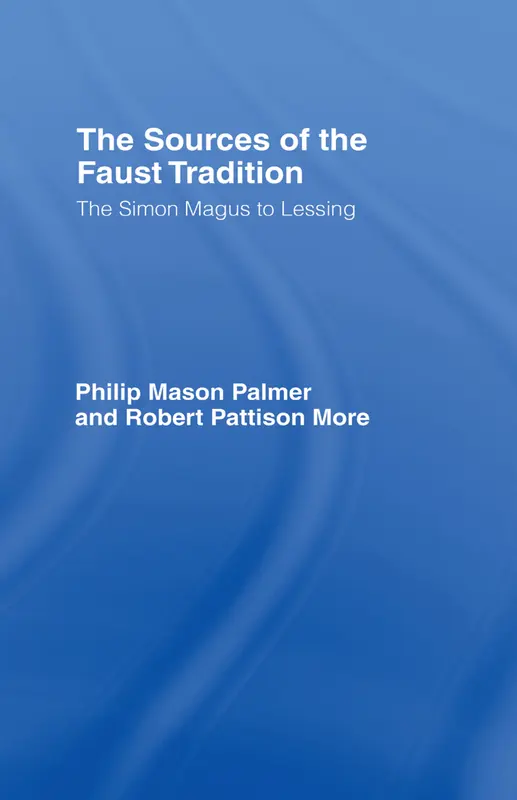
Sources of the Faust Tradition.
The Simon Magus to Lessing
More R.P., Palmer P.M.
Год :2013 Количество страниц :300 [313] Язык :Английский Категория :+ Гнозис негностиков Скачать : Epub PdfПоддержать :
Preface:
In an experience of many years in conducting a course in Goethe’s Faust, trying to present to students of varied types and training the background out of which the drama grew, the compilers of this text have constantly felt the need of a collection of source material which would make that background more real and consequently more interesting.
Whether a student is studying the background of Goethe’s Faust, or any other subject, it is desirable, both from the point of view of holding his interest and of developing his power of judgment, that he get as much direct contact as possible with the original materials that make up his field of study. But the original materials that are implied in a study of the growth and development of the Faust legend are widely scattered and for the undergraduate often difficult, if not impossible, of access. Furthermore, knowing, as he frequently does, “little Latin and less Greek,” it is very questionable whether he can use them if he is able to find them.
The authors have endeavored to bring together in usable form the materials in question. The content and form of the collection have been in part determined by its primary purpose of serving as an aid to students receiving their first serious introduction to Goethe’s masterpiece and in part by the trend of Faust research. It is intended to be used as a supplement to the usual scholarly edition in the student’s hands.
The authors are deeply grateful to the many who have been helpful with friendly hints and counsel. They wish to acknowledge especially the assistance of Professors Charles J. Goodwin and Adolph F. Pauli in checking the translations of the Cyprianus and Theophilus selections respectively; the courtesy of the Committee on Rotographs of MSS. and Rare Printed Books of the Modern Language Association of America in supplying a photostatic copy of the British Museum text of the English Faust Book of 1592; and, finally, the kindness of Professor John A. Walz, of Harvard, who, with characteristic thoroughness and patience, looked over the manuscript and gave many welcome suggestions.
M. PALMER, R.P. MORE





